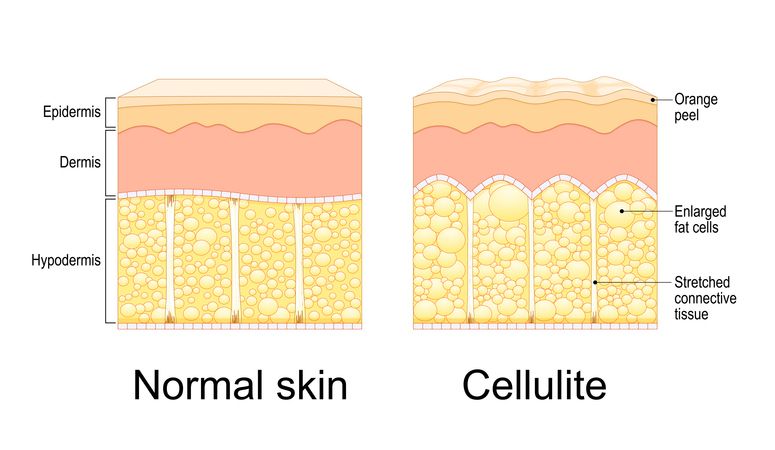Author: Natalie Ng|Updated: 6 May 2025
Lemon is one of the most talked-about citrus fruits in skincare, especially when it comes to treating acne. It's packed with vitamin C, citric acid, and natural antibacterial properties, which is why some people reach for fresh lemon juice when breakouts hit. But applying lemon juice directly to your skin isn’t always a good idea. Its high acidity and strong ascorbic acid levels can cause irritation, redness, dryness, and even sunburn. For acne prone skin, those risks can lead to more problems like dark spots, peeling, or in some cases, the kind of reaction that makes you think you need to perform emergency surgery (you won’t, but it’ll feel that way). Plus, using lemon for acne without the right method can throw off your skin’s pH balance and increase oil production or bacterial growth—making acne worse instead of better. So while the benefits of lemon juice for acne seem promising, especially in reducing excess oil and fading acne scarring, it's not as simple as squeezing a lemon and dabbing it on a pimple. Keep reading to learn which lemon DIY recipes are safe, which ones to avoid, and how to make them work in your skincare routine without risking damage.

Diluted Lemon Toner for Daily Cleansing
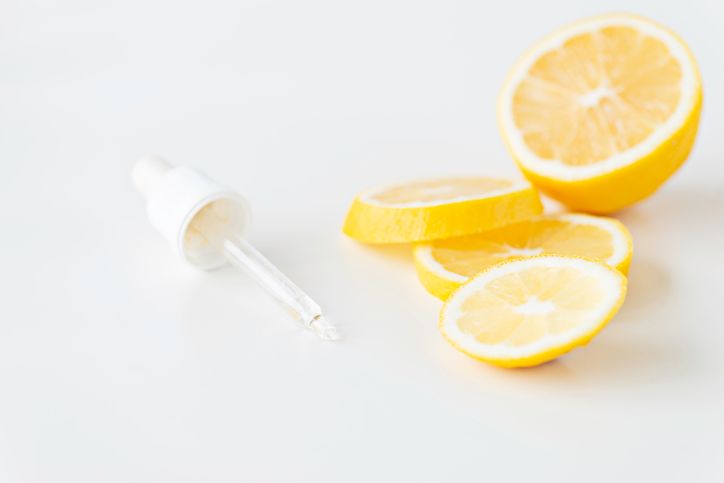
Lemon juice isn’t a safe DIY toner—even when diluted
Fresh lemon juice sounds like a quick fix for acne, but turning it into a daily toner is risky. Its high acidity (thanks to citric acid and ascorbic acid) can mess with your skin's natural pH. That can lead to irritation, dryness, redness, and even peeling—especially for acne prone skin.
It can increase sun sensitivity and trigger inflammation
Lemon’s antibacterial properties and vitamin C might seem helpful for breakouts, but its acidic nature also makes your skin more sensitive to sunlight. This means applying lemon juice can lead to sunburn, dark spots, or uneven skin tone. For anyone already treating acne or dealing with hyperpigmentation or acne scarring, this can make things worse, not better.
Why homemade lemon toners don’t work
The acidity in citrus fruits like lemon isn’t consistent. So even if you dilute it, there’s no way to control the concentration. That means you can’t safely reduce excess oil, shrink pores, or get rid of blemishes without risking damage. Plus, applying lemon juice daily might cause more inflammation and worsen bacterial growth.
Instead of trying to treat acne with fresh squeezed lemon juice, stick to home remedies that are proven to be safer—or look into over the counter products with active ingredients designed for acne treatment. If your skin is already irritated or reactive, speak with a dermatologist before making any changes to your skincare routine.

Spot Treatment with Lemon and Honey
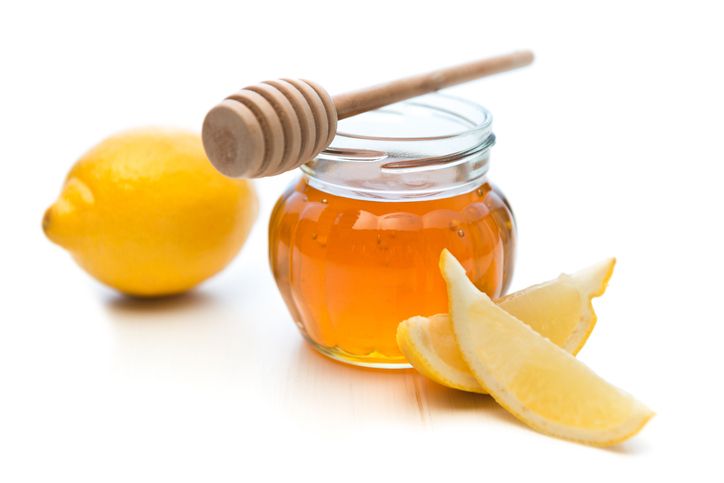
Mixing lemon with honey can help—but only as a short-term spot treatment
Using lemon for acne in combination with honey is one of the more balanced home remedies, but it still needs caution. Honey has anti inflammatory and antibacterial properties that help calm redness and reduce bacterial growth. When mixed with a small amount of fresh lemon juice, it may help dry out small pimples or clogged pores.
Why this only works on specific spots—not your whole face
This isn’t something you should use all over your skin. The acidity from lemon juice can still cause irritation, especially on sensitive or broken skin. It’s best used as a targeted spot treatment. Dab the mixture onto a blemish using a clean cotton swab, let it sit for 5–10 minutes, then rinse with lukewarm water. Always follow with a moisturiser and SPF to protect your skin barrier.
Patch test first and avoid active breakouts
Only use this method if your skin isn’t already inflamed or peeling. Applying lemon juice—even diluted—to active acne or damaged areas can lead to stinging, dryness, or worse. Do a patch test before applying it anywhere near your face, and don’t use this method often. Overusing it can throw off your oil production and lead to more breakouts.
If you’re looking for long-term treatment options, especially for acne scarring or hyperpigmentation, there are safer alternatives like serums with vitamin C or ingredients backed by peer reviewed studies.
Read More
Book Now to Experience
Acne Treatment
1 Minute Self-Registration
Date should not be before minimal date

Honey and Lemon Face Mask
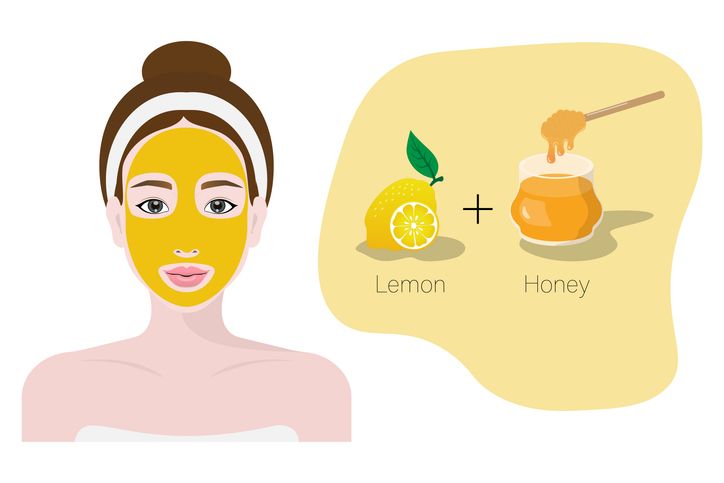
Why this mix can damage your skin barrier
At first glance, combining honey and lemon for a face mask might seem like a simple, natural acne treatment. Honey is known for its antibacterial and anti inflammatory properties, while lemon juice contains citric acid and vitamin C, which are often linked to brightening and reducing acne. But putting them together, especially as a full-face mask, can backfire.
Lemon’s acidic nature can throw off your skin’s natural pH, leading to dryness, redness, and even irritation that lasts beyond a day. When used on acne prone skin, it can trigger inflammation or cause the skin to produce more sebum—leading to clogged pores and more breakouts. The honey doesn’t reduce the risk of irritation from lemon, especially if the juice is fresh squeezed and not diluted enough.
Risks of photosensitivity and long-term skin damage
The high concentration of citric acid in lemon juice can increase your skin’s sensitivity to sunlight. This can result in sunburn, dark spots, and long-term hyperpigmentation—especially if you apply the mask during the day or skip SPF after. Chemical burns are also a real risk when this mask is left on for too long, or applied too frequently.
Why this combo doesn’t work well as a full-face treatment
Even if honey is soothing on its own, it can’t cancel out the harsh effects of lemon’s acidity. This mix is especially risky if you already have active breakouts, dryness, or sensitive areas. It’s not a good idea to apply lemon juice across your entire face, even when mixed with a gentler ingredient like honey.
Instead of using DIY lemon masks, go for safer treatment options. Look for acne treatment products with controlled levels of active ingredients like salicylic acid or benzoyl peroxide—ones that are backed by peer reviewed studies and made specifically for treating acne without damaging your skin’s barrier.

Lemon-Yogurt Spot Treatment
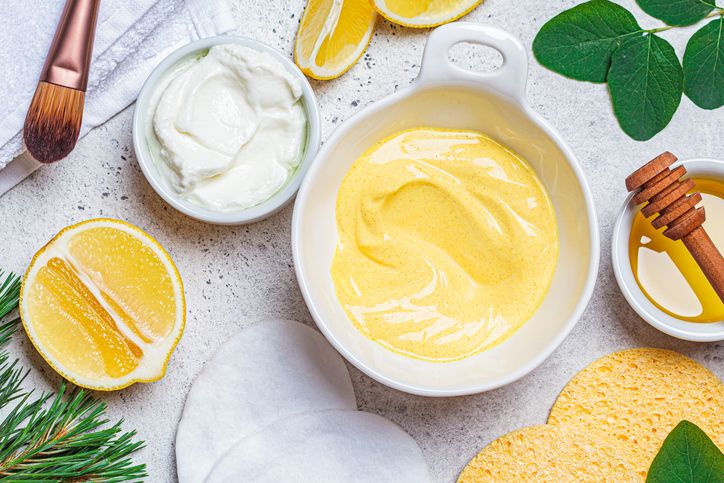
Why this combo causes more harm than good
Mixing fresh lemon juice with yogurt might seem like a natural spot treatment for breakouts, but this combo can cause more damage than improvement. Yogurt contains lactic acid and probiotics, which are generally gentle on skin. But adding lemon juice—especially at full strength—raises the acidity of the mixture to a level that can irritate and inflame acne prone skin.
The citric acid in lemon, combined with yogurt’s natural acids, creates a mix that can disrupt your skin’s pH and lead to burning, stinging, and redness. Even if you're only applying it to small areas, there's a high chance it could worsen breakouts, cause flaking, or trigger a reaction.
It increases sun sensitivity and doesn’t help oil control
Lemon's acidic properties can make your skin more vulnerable to UV rays, especially after use. Applying this mix before sun exposure—even if you rinse it off—can lead to hyperpigmentation or dark spots. On top of that, the drying effects of lemon might seem to help with excess oil at first, but your skin can respond by producing more sebum, which can cause more breakouts.
Safer alternatives for spot treatment
If you're looking for ways to treat pimples without harsh side effects, skip the lemon-yogurt mix. Instead, use over the counter spot treatments that include active ingredients like sulfur, benzoyl peroxide, or salicylic acid. These are specifically designed to reduce inflammation, kill acne-causing bacteria, and treat blemishes without disrupting your skin barrier.
Natural ingredients like tea tree oil or green tea extract are also safer options. They offer antibacterial benefits with less risk of irritation, especially when diluted and applied properly using a cotton swab as part of a consistent skincare routine.
Book Now to Experience
Acne Treatment
1 Minute Self-Registration
Date should not be before minimal date

Green Tea and Lemon Brightening Solution
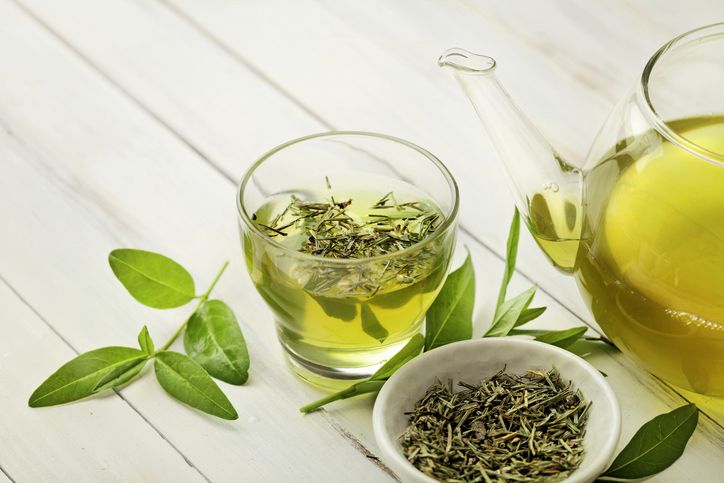
A mix with potential—but only if used carefully
Combining green tea and fresh lemon juice is a popular DIY idea for brightening skin and fading acne scars. Green tea is full of antioxidants that help calm inflammation and may support skin healing. Lemon juice is often used for its vitamin C and citric acid, which can help with exfoliation and improving skin tone.
But this mixture is only safe if you dilute it properly. Lemon’s high acidity can still cause irritation, especially if you use too much or apply it too often. On acne prone skin, the risk of redness, dryness, or flaking is high if the balance isn’t right.
How to mix it safely
To make a safer version of this brightening solution, you’ll need to use the right proportions:
• 1 part cooled green tea (steeped and strained)
• ½ part fresh squeezed lemon juice (strained to remove pulp)
• ¼ part pure honey (optional, for added moisture)
• ¼ part filtered water (to help dilute the acidity)
Apply the mixture using a clean cotton swab or pad to targeted areas only—not your full face. Leave it on for no more than 10 minutes, rinse with lukewarm water, and follow with a moisturiser. Avoid using this before sun exposure.
Don’t rely on it to fade acne scarring
While this solution might help brighten your skin slightly, there's limited evidence that it can effectively treat acne scars or dark spots. Peer reviewed studies haven’t shown strong results for lemon in treating acne scarring, and the acidity can actually make post-acne marks look worse if it causes irritation or increases sun sensitivity.
For real improvement, look into products with ingredients like niacinamide, azelaic acid, or vitamin C serums designed for skin care. These offer more predictable results and less risk, especially for sensitive or acne prone skin.

Lemon Peel Powder Scrub
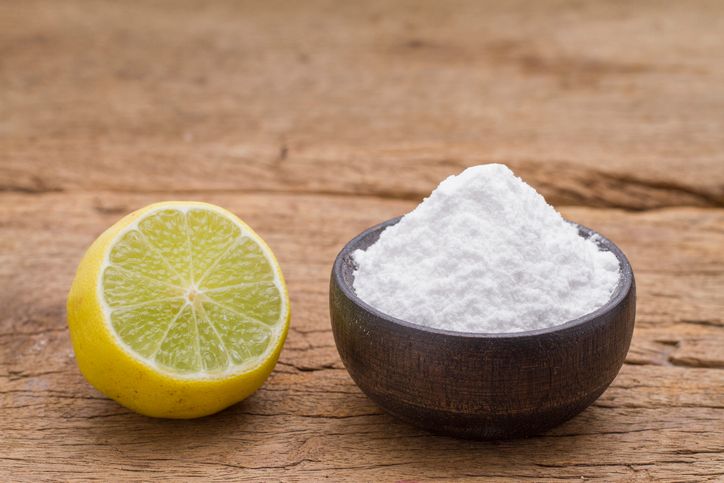
A natural exfoliant—but not without risks
Lemon peel powder is often used in DIY skincare for its exfoliating and brightening effects. It contains vitamin C, citric acid, and antioxidants, which can help slough off dead skin cells, reduce excess oil, and improve overall skin tone. When used carefully, it may also help reduce the appearance of blemishes or acne scars.
But like all lemon-based treatments, this scrub can be harsh—especially if used too often or on sensitive skin. The drying effects of citrus and the physical scrubbing action can lead to redness, inflammation, and irritation, particularly if your skin is already breaking out or healing from acne.
How to prepare lemon peel powder
To make the powder safely at home:
• Use only organic, unwaxed lemons
• Peel and remove the white pith (it’s bitter and unnecessary)
• Dry the peels fully in a dehydrator or oven on the lowest setting (around 95°F / 35°C)
• Grind into a fine powder using a clean coffee grinder or mortar and pestle
• Sift to remove large particles, then store in an airtight container out of sunlight
This helps preserve its antioxidants and keeps the powder clean and safe to use in small amounts.
How to use it without harming your skin
Mix 1 teaspoon of lemon peel powder with plain yogurt, honey, or water to form a gentle paste. Apply to damp skin in light, circular motions, avoiding any active breakouts or sensitive areas. Don’t scrub hard, and avoid the area around your eyes.
Leave the mixture on for 5–10 minutes, then rinse with lukewarm water. Always follow with a moisturiser and SPF, since even peel-based treatments can increase photosensitivity.
Use no more than twice per week. Overuse or using it on broken skin can lead to more acne, irritation, or dryness—especially if your skin is already struggling with oil production or inflammation.
Book Now to Experience
Acne Treatment
1 Minute Self-Registration
Date should not be before minimal date

Aloe Vera and Lemon Gel Mix
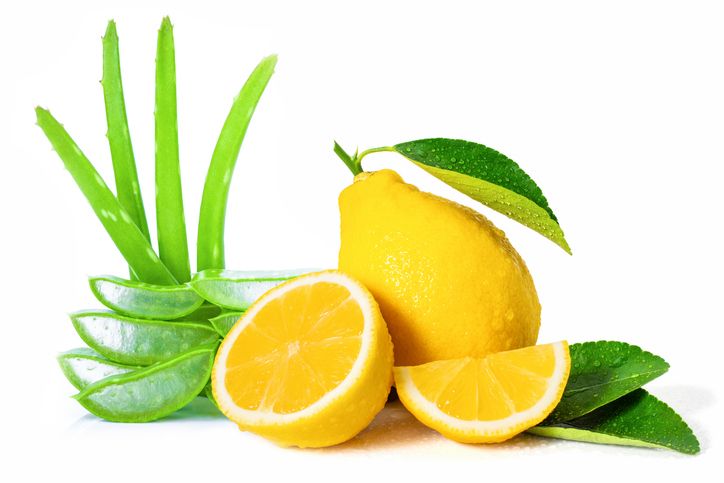
A soothing idea—but balance is everything
Aloe vera is known for its calming, hydrating, and anti inflammatory properties. It’s gentle on acne prone skin and can help reduce redness and irritation. Lemon juice, on the other hand, offers antibacterial properties and may seem helpful for treating acne or brightening dark spots. But when you mix these two, the risk lies in the acidity of the lemon overpowering the soothing effect of aloe.
If not diluted properly, lemon juice can cause irritation, dryness, and photosensitivity—even when mixed with aloe. That’s why getting the ratio right is crucial for making this combo work without harming your skin.
Safe way to prepare the mixture
To lower the risk of irritation and still benefit from both ingredients, follow these steps:
• Use fresh aloe vera gel, either directly from the plant or a fragrance-free, preservative-free commercial gel
• Dilute fresh squeezed lemon juice with purified water at a 1:3 ratio (1 part lemon juice to 3 parts water)
• Mix the diluted lemon juice with aloe vera in equal parts
• Store in a small, airtight container in the fridge for up to 1 week
Before using, always apply a patch test behind your ear or on your inner forearm and wait 24 hours to check for any reaction.
How and when to apply
Apply the mixture only to clean skin—preferably at night, using a cotton swab or clean fingers. Avoid any broken skin, active pimples, or sensitive areas like under the eyes. Leave it on for 10 minutes at most, then rinse with lukewarm water. Follow with a moisturiser to prevent dryness.
Avoid sun exposure for at least 24 hours after using this gel. Lemon can make your skin more sensitive to UV rays, and this could lead to hyperpigmentation or worsen existing acne scarring. Always apply SPF during the day if you’re using lemon in any part of your skincare routine.

Common Mistakes When Using Lemons on Skin

1. Applying lemon juice directly to skin
Using fresh squeezed lemon juice on your face without diluting it is one of the most damaging mistakes. Lemon contains a high concentration of citric acid and ascorbic acid, which gives it a very low pH. Applying it straight can disrupt your skin's barrier, leading to irritation, stinging, and sometimes chemical burns. For acne prone skin, this can trigger more breakouts and inflammation.
2. Leaving lemon treatments on for too long
People often think leaving a treatment on longer will give better results. That doesn't apply here. Lemon’s acidity can quickly irritate skin if left on for too long—especially if you already have pimples or sensitive areas. Anything over 10 minutes increases your risk of dryness, redness, or even peeling.
3. Using lemon before sun exposure
Lemon juice makes your skin more sensitive to sunlight. If you apply it and head outdoors without protection, you’re risking sunburn and dark spots. This is caused by a reaction between lemon’s compounds and UV rays, and can result in painful burns or hyperpigmentation that lasts for weeks.
4. Skipping dilution and patch testing
A lot of people forget to dilute lemon juice or test it before applying it to their face. That’s risky. Undiluted lemon can cause an immediate reaction, especially if your skin is already stressed. Always dilute and do a 24-hour patch test on your forearm first.
5. Using lemon on broken or sensitive skin
Applying lemon to irritated, inflamed, or broken skin is never safe. It can sting, worsen redness, and slow down healing. Keep lemon-based treatments away from active pimples, cuts, or the delicate skin around your eyes.
Being cautious with these common mistakes can make a big difference in how your skin reacts. If you're using lemon for acne or skincare, always dilute properly, test first, and avoid any application that puts your skin at risk.
Book Now to Experience
Acne Treatment
1 Minute Self-Registration
Date should not be before minimal date

Safety Guidelines and Skin Patch Testing
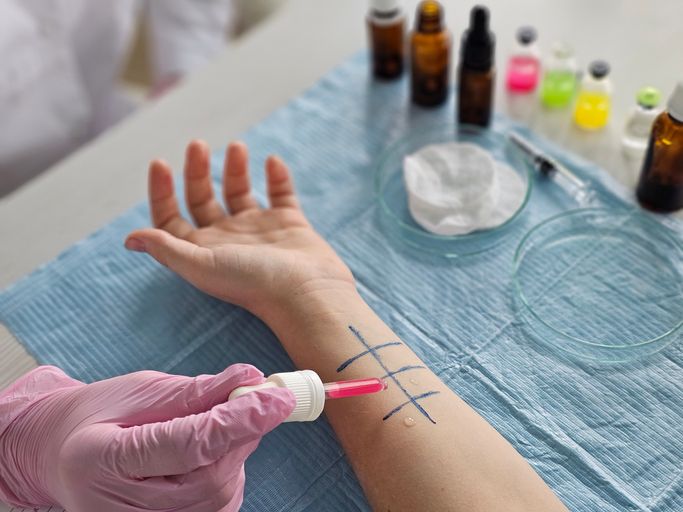
1. Always patch test before using lemon-based treatments
Before applying any lemon-based product to your face, you need to test how your skin reacts. This helps prevent unexpected irritation, allergic reactions, or sensitivity flare-ups.
To perform a patch test:
• Mix your lemon-based treatment using proper dilution (never apply pure lemon juice).
• Apply a small amount to a clean area on your inner forearm using a cotton swab.
• Wait 24 hours without washing the area.
• If you notice redness, itching, burning, or swelling, do not use the treatment on your face.
2. Dilute lemon juice with care
Pure lemon juice is too strong to use directly on your skin. Always mix it with other ingredients like water, aloe vera, honey, or green tea in proper ratios. This helps reduce the acidity and lowers the risk of irritation.
Suggested dilution ratios:
• 1 part lemon juice to 3 parts water for a mild toner
• 1 part lemon juice to 4 parts aloe vera gel for sensitive skin
• 1 teaspoon lemon juice to 2 tablespoons honey for masks
• 1 teaspoon lemon juice in ¼ cup rosewater for a gentle mist
Using these ratios helps balance the pH and keeps the solution closer to your skin’s natural acidity level.
3. Avoid sun exposure after use
Even diluted lemon juice can increase photosensitivity. Always apply lemon-based treatments at night, and avoid sunlight for at least 24 hours afterward. If you're using any citrus-based remedy, apply SPF the next day—even if you're staying indoors near windows.
4. Watch for signs of irritation
If your skin feels tight, itchy, stings, or becomes red after application—even with proper dilution—wash it off immediately with lukewarm water and moisturise. If discomfort continues, stop using the treatment entirely.
These safety steps are essential for anyone trying lemon as a skincare ingredient. Treating acne, scars, or blemishes at home can work—but only if done gently and carefully.

Professional Acne Treatment to Boost DIY Lemon Remedies
1. Enhance your results with a clinical acne solution
While DIY lemon-based acne remedies can help with mild breakouts or support your skincare routine, they can only go so far—especially when dealing with stubborn acne or deep acne scarring. For more severe or persistent cases, combining your at-home care with New Beauty’s Acne Treatment can speed up progress and deliver clearer, smoother skin without the guesswork.
This treatment works by using a dual spiral suction and drainage system to deeply cleanse the skin. It removes dirt, bacteria, excess oil, and dead skin cells that can clog pores and trigger breakouts. After clearing out impurities, a medical-grade hydrating serum is infused directly into your skin to soothe inflammation, rebalance oil production, and support collagen growth.
2. How it supports your skincare routine
Adding this treatment to your routine helps prevent future breakouts by cleaning the skin more deeply than topical treatments or home remedies. If you’ve been using lemon for acne to reduce oil or improve skin tone, this treatment enhances those efforts by targeting the root cause—blocked pores, sebum buildup, and bacterial growth.
It also helps reduce acne scarring, soften textured skin, and soothe ongoing irritation, giving your skin a fresh base for other treatments like lemon peel powder masks or green tea and lemon solutions.
3. Key benefits
• Removes acne-causing bacteria and clears pores
• Reduces excess oil and balances sebum levels
• Softens skin texture and fades hyperpigmentation
• Infuses moisture and nutrients without irritating the skin
• No downtime, pain, or risk of side effects like those from harsh acids
This non-invasive option is especially helpful if you’ve experienced irritation from lemon juice or other acidic treatments. It supports your skin’s recovery and makes your other acne remedies work more effectively.
Ready to treat acne and support your skin the right way? Book your Acne Treatment today and start seeing real results—fast, safe, and without harsh chemicals.
New Beauty's Acne TreatmentBook Now to Experience
Acne Treatment
1 Minute Self-Registration
Date should not be before minimal date
FAQ
Can Leftover Lemon Remedies Be Stored in the Refrigerator for Future Use?
You shouldn't store leftover lemon remedies in the refrigerator, as the citric acid's properties deteriorate rapidly once exposed to air, making them less effective over time. Additionally, stored lemon mixtures can develop harmful bacteria, even when refrigerated, which could irritate your skin. Instead, you'll get the best results by preparing fresh lemon-based treatments immediately before each use.
How Long Does It Take to See Results From Lemon-Based Acne Treatments?
You'll typically notice initial results from lemon-based treatments within 2-3 weeks of consistent use, though individual responses vary based on skin type and acne severity. During the first week, you might experience mild drying or tingling, while visible improvements in acne spots often begin around week two. For ideal results, you'll need to maintain regular application for 4-6 weeks, tracking your skin's response and adjusting usage accordingly.
Will Lemon Treatments Help Reduce Old Acne Scars and Dark Spots?
While lemon's natural citric acid can help fade post-acne marks and hyperpigmentation through its mild exfoliating properties, you'll need to be cautious with this approach. The acid can cause skin sensitivity, particularly in sunlight, and may worsen scarring if not used properly. For more reliable results, you might want to think about dermatologist-recommended treatments like vitamin C serums, retinoids, or professional procedures designed specifically for scar reduction.
Can These Lemon Remedies Be Used on Body Acne and Back Acne?
You'll want to be especially careful since body skin can react differently to acidic treatments, potentially leading to irritation or chemical burns. Instead, opt for body-specific acne treatments that are specifically formulated for these areas, containing ingredients like salicylic acid or benzoyl peroxide.
Are Organic Lemons More Effective for Skincare Than Regular Store-Bought Lemons?
When it comes to skincare applications, organic and conventional lemons don't show significant differences in their active compounds, particularly citric acid and vitamin C. While organic lemons might've fewer pesticide residues, this doesn't affect their skincare effectiveness since you'll be washing the fruit anyway. What matters more is using fresh, ripe lemons and proper dilution methods, regardless of whether they're organic or conventional.
Recommended Articles
COPYRIGHT© NEW BEAUTY MANAGEMENT LIMITED 2026. ALL RIGHT RESERVED.

